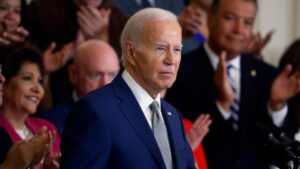On April 24, 2025, President Trump announced a groundbreaking executive order aimed at allowing seabed mining in international waters, a decision that brings the U.S. into conflict with many nations that view such mining as a violation of international norms. The move signals a shift in the U.S. approach to exploiting ocean mineral resources, notably in the Clarion-Clipperton Zone, rich in essential minerals like nickel and cobalt which are fundamental to technology and national security.
Trump's Bold Move on Seabed Mining Challenges Global Consensus

Trump's Bold Move on Seabed Mining Challenges Global Consensus
In a significant executive order, President Trump positions the U.S. for seabed mining, a contentious move against international treaties.
The order facilitates U.S. leadership in mineral exploration beyond national jurisdictions, potentially reshaping the global mining landscape. It targets critical minerals typically dominated by foreign suppliers, particularly China. However, the action is contentious; it circumvents the UN Convention on the Law of the Sea, ratified by nearly all coastal nations except the U.S., and may spark international tensions.
Critics raise concerns regarding environmental impacts, as seabed mining has never been done on a commercial scale, and apprehensions about its ecological ramifications linger. Technological challenges also remain significant, making practical implementation uncertain.
This executive move reflects a willingness to disregard existing international protocols in pursuit of national interests, further complicating U.S. relations with both allies and adversaries, and raising questions about the future of global governance in shared maritime resources.
Critics raise concerns regarding environmental impacts, as seabed mining has never been done on a commercial scale, and apprehensions about its ecological ramifications linger. Technological challenges also remain significant, making practical implementation uncertain.
This executive move reflects a willingness to disregard existing international protocols in pursuit of national interests, further complicating U.S. relations with both allies and adversaries, and raising questions about the future of global governance in shared maritime resources.






















